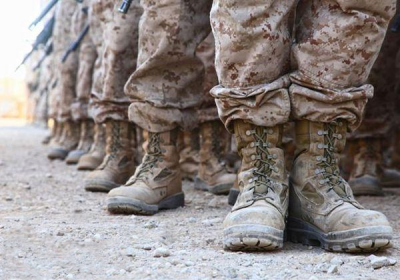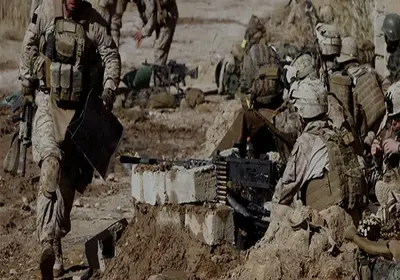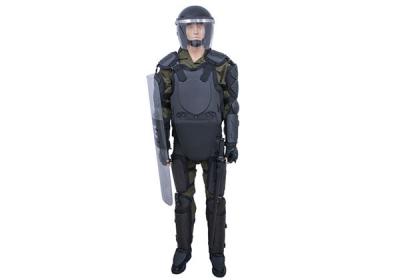
Police are deployed into all types of environments, including potentially hostile ones, constantly risking their lives. In such a dangerous job, you must do everything possible to protect yourself and make sure you can go home with your family every night. This requires having the proper equipment and body armor on hand so that you can perform your duties safely and efficiently. Bulletproof vests and other protective gear are available in a wide variety to suit a wide range of needs and budgets. When choosing your equipment, it is important as an officer to know the details of what you bring into the field. Not all police departments have the resources or availability of the best gear for you, and your personal safety is too important to settle for. For your protective gear in particular, it is imperative to know what protection you will be receiving and what level of effectiveness they will have. What do you need to look out for when you're considering your next purchase?
Bulletproof vests and other protective gear need to be selected based on your jurisdiction and the types of people you come into contact with every day, starting with an assessment of the threats you may face. Aside from specialized gear for very specific situations, your everyday gear should be adequate to protect you from any potential threats you may face, without compromising your mobility or causing you to overrun your budget unnecessarily.
After determining what possible threats you may face, you can properly evaluate any equipment you come across and decide if it's worth the investment. There are many factors to consider when looking at bullet resistant vests. The first thing you should look for is the degree of protection of the bulletproof vest. These classes are set by the National Institute of Justice (NIJ) and range from Class I, which protects the wearer from the most basic small-caliber bullets, to Class III and IV (the highest level of protection other than special armor), high-caliber bullets and armor-piercing rounds.
Depending on the level of protection you think is adequate, other standards for the gear you need will begin to fall into place. You'll want to look for a number of features on a bulletproof vest that will be very helpful in carrying out your day-to-day duties. The most important of these features is comfort. Don't use an uncomfortable vest because you'll be wearing it most of the time, if not all day. Bulletproof vests also need to allow you to make the most of your full range of motion and not be overly heavy if you need to run, jump over obstacles, or engage in close combat.
 Put on Your Army Boots Before the Battle, Tidy Up Your Trouser Legs and ShoelacesJune 30, 2021Many people like to stuff their trouser legs into their boots when they wear military boots, which showing they are handsome and energetic.view
Put on Your Army Boots Before the Battle, Tidy Up Your Trouser Legs and ShoelacesJune 30, 2021Many people like to stuff their trouser legs into their boots when they wear military boots, which showing they are handsome and energetic.view Is Ballistic Helmet Really Bulletproof?November 29, 2021Everyone knows that the battlefield is very dangerous, especially under the rain of guns and bullets in modern warfare. An inconspicuous bullet that does not draw people's attention may kill soldi...view
Is Ballistic Helmet Really Bulletproof?November 29, 2021Everyone knows that the battlefield is very dangerous, especially under the rain of guns and bullets in modern warfare. An inconspicuous bullet that does not draw people's attention may kill soldi...view How Much Do You Know About Ballistic Helmets?November 29, 2021Nowadays, the ballistic helmet has become an indispensable member of safety equipment in some police agencies and military. Its function is not only limited to military aspects, but any organization o...view
How Much Do You Know About Ballistic Helmets?November 29, 2021Nowadays, the ballistic helmet has become an indispensable member of safety equipment in some police agencies and military. Its function is not only limited to military aspects, but any organization o...view What Dangers Can Bulletproof Vests Withstand?March 29, 2022If the wearer happens to find themselves in any dangerous situation, especially one involving firearms, the bulletproof vest provides them with discreet protection. The mass shootings seem to be getti...view
What Dangers Can Bulletproof Vests Withstand?March 29, 2022If the wearer happens to find themselves in any dangerous situation, especially one involving firearms, the bulletproof vest provides them with discreet protection. The mass shootings seem to be getti...view What Do You Know About Police Riot Suits?September 9, 2021In recent years, there have been more and more riots around the world, and social turbulence has occurred. In order to stop these anti-riot processes, in order to protect the safety of the police and ...view
What Do You Know About Police Riot Suits?September 9, 2021In recent years, there have been more and more riots around the world, and social turbulence has occurred. In order to stop these anti-riot processes, in order to protect the safety of the police and ...view Why is PC Anti Riot Shield So Popular?September 9, 2021In recent years, with the rapid development of society, there have been more and more wars in areas, and social violence is also not a minority. There are often some bad incidents of illegal gathering...view
Why is PC Anti Riot Shield So Popular?September 9, 2021In recent years, with the rapid development of society, there have been more and more wars in areas, and social violence is also not a minority. There are often some bad incidents of illegal gathering...view